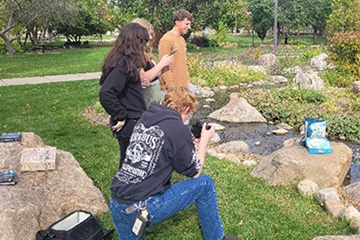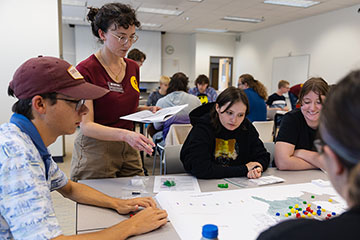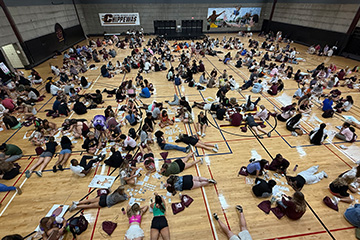Center for Learning through Games and Simulations
The Center for Learning through Games and Simulations (CLGS) at Central Michigan University is a faculty-led academic center that promotes the use of games, simulations, and play in learning. The use of games facilitates an active-learning agenda with a high level of student engagement. The goal is to have the students learn course material while simultaneously building skills in leadership, public speaking, critical thinking, problem-solving and analysis.
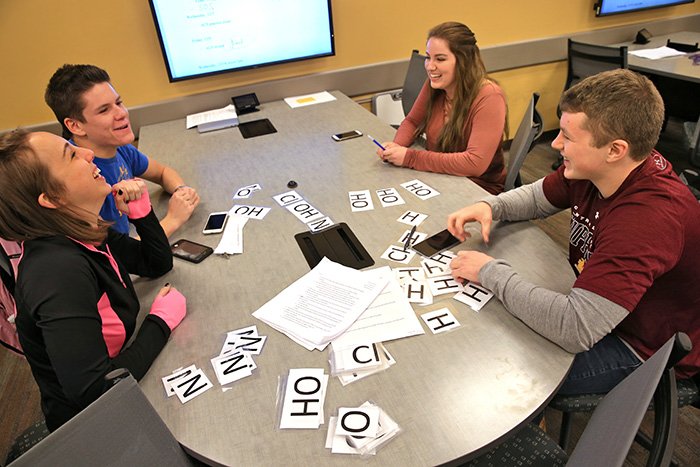

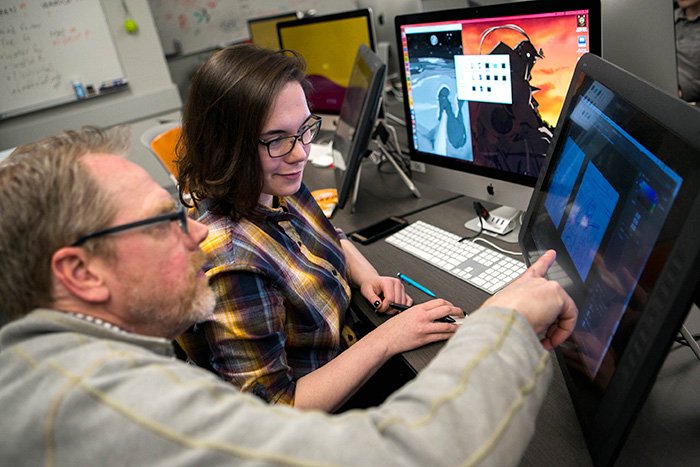
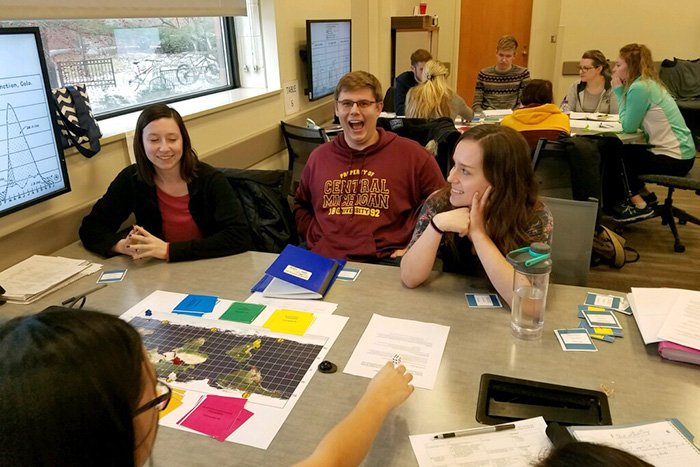
New release

Check out one of the latest releases from Central Michigan University Press, now available for pre-order!
Keep the Faith is a storytelling game of belief, tension, and transformation, designed to create compelling narratives and spark discussions between players. Players become members of a fictional Faith in transition, shaping its rituals, symbols, and stories as beliefs evolve and fracture under pressure. Through cards and shared narration, they explore how conviction, community, and power shape a religion’s future.
Game Design Thinking minor
The Game Design Thinking Minor offers students an interdisciplinary approach to the study of games and game design. Drawing upon several disciplinary approaches from across the university, it is structured to allow students to explore and apply the principles of good game design to a broad range of potential career options. Contact the Center for Learning through Games and Simulations for more information or to declare the minor.
Process for course inclusion
The Game Design Thinking Minor offers students an interdisciplinary approach to the study of games and game design. Drawing upon several disciplinary approaches from across the university, it is structured to allow students to explore and apply the principles of good game design to a broad range of potential career options.
CMU Faculty who wish to have a course added to the GDT minor program should note the following requirements:
- Requests should include contact details and department of the requesting faculty, a short statement making the request, and a teaching syllabus for the course in question.
- Requests to include a course in Required Courses I, II, or IV of the GDT minor program must also include a written rationale for inclusion.
- For inclusion in Required Courses III of the GDT minor program, the teaching syllabus of a course must have at least 40% of its total assessment related to games and/or game-based learning.
Formal requests may be submitted at any time throughout the academic year to clgs@cmich.edu or delivered to the Center for Learning through Games and Simulations, Anspach 001. Requests will be reviewed by the Game Design Thinking Interdisciplinary Program Council (GDTIPC) at its next available scheduled meeting.
The following is a breakdown of each section of the GDT minor program, offered to help faculty applicants in deciding which part of the minor to apply for.
- Required Courses I: This category is for the core courses of the minor, which introduce students to various philosophies of and approaches to game design, as well as the ways people learn through games.
- Required Courses II: This category offers students experience with skills associated with analog and video game design.
- Required Courses III: The courses in this category broadly expose students to the process of game critique and game-based learning (colloquially referred to as “games in the wild”).
- Required Capstone: The capstone courses offer students the opportunity to apply their previous learning to the process of building, designing, and testing a game, either individually or as part of a team.
Meet the staff
Dr. Tracy Davis, Co-Director
241 Anspach Hall
989-774-3181
Email: davis5t@cmich.edu
Dr. Jonathan Truitt, Co-Director
002E Anspach Hall
989-774-2668
Email: truit1jg@cmich.edu
Dr. Andrew D. Devenney, Associate Director
001 Anspach Hall
989-774-1453
Email: deven1ad@cmich.edu
Support
The Center for Learning through Games and Simulations is grateful for the support of the following offices and organizations:
Supporters
- Breneman Jaech Foundation
- College of the Arts and Media
- College of Business Administration
- College of Liberal Arts and Social Sciences
- College of Science and Engineering
- The Herbert H. and Grace A. Dow College of Health Professions
- LUDUS Foundation
- Office of Curriculum and Instructional Support
- Office of Research and Graduate Studies
- President's and Provost's Fund for Innovation
